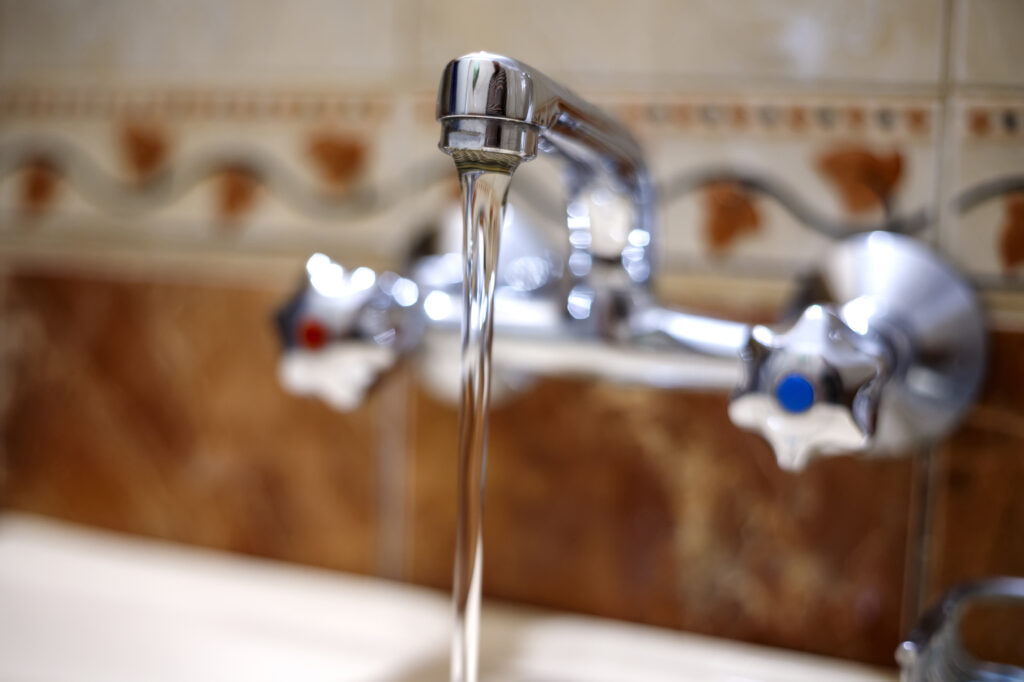For homes and businesses that rely on a well for their water supply, a properly functioning system is essential for providing a reliable and clean water supply. However, like any mechanical system, wells experience wear and tear over time. When issues arise, homeowners are often faced with a critical decision – repair the existing system or invest in a full replacement. Recognizing the warning signs of a failing water well system can help prevent unexpected breakdowns, costly emergency fixes, and water supply disruptions. It is also important to understand the factors that determine whether a repair or replacement is the best course of action, and how professional assessment can ensure long-term water quality and efficiency.
Common Water Well System Issues
A properly functioning water well system should provide a steady flow of clean water without interruptions. When problems arise, they can manifest in several ways. Identifying these warning signs early can help prevent more severe damage.
Decreased Water Pressure
If your faucets are delivering weak or inconsistent water pressure, it may indicate a problem with your well pump, pressure tank, or water lines. Clogged pipes, mineral buildup, or a failing pump can all contribute to pressure issues.
No Water Flow
A complete lack of water is one of the most urgent indicators of a well system failure. This could be due to electrical issues, a dry well, or a damaged pump. A professional inspection is the best option to determine the cause.
The Pump Runs Continuously
A well pump that never shuts off is a sign that the system is struggling to maintain proper water flow. This could be due to a pressure switch malfunction, a leak in the system, or an improperly sized pump. A pump running constantly increases energy costs and shortens its lifespan.
Air Bubbles in Water
If your faucets sputter or release bursts of air along with water, it may indicate a problem with the well pump, a crack in the well casing, or a low water level in the well. Air entering the system can cause damage over time and should be addressed quickly.
Unusual Noises
Grinding, clicking, or banging sounds from your well pump or pressure tank often signal mechanical failure or loose components. Ignoring these noises can lead to a total system breakdown.
Changes in Water Quality
If your water suddenly becomes discolored, smells bad, or tastes metallic, it may be due to contaminants, pipe corrosion, or issues with the well casing. Water testing and system inspection are essential to pinpoint the problem and prevent health risks.
When to Choose Repair
Not every water well system issue requires a full replacement. In many cases, repairing specific components can restore functionality and extend the life of the system.
Minor Mechanical Issues
Simple problems like a faulty pressure switch, a small pipe leak, or minor sediment buildup can often be fixed quickly and at a lower cost than replacing the entire system. Regular maintenance can prevent these small issues from escalating.
Newer Well Systems
If the well system is relatively new and has been properly maintained, repairs are usually the most practical choice. Components like pumps and pressure tanks are designed for long-term use, and replacing one part may be enough to get the system running efficiently again.
Cost Considerations
When repairs are significantly less expensive than replacement and the system is otherwise in good condition, fixing the problem is a logical choice. A professional can assess whether a repair will provide a lasting solution or if replacement is a better investment.
Restored Efficiency
If a well system can be repaired without compromising efficiency or performance, it is worth keeping in place. Addressing small issues early can keep the system operating at peak capacity without unnecessary expenses.
Premature Replacement
Replacing an entire water well system before it has reached the end of its useful life can be an unnecessary financial burden. If repairs can extend its lifespan for several more years, this is often the more economical choice.

When to Choose Replacement
While repairs can solve many issues, there are situations where replacing the water well system is the best course of action.
Ongoing Repairs
If the system requires frequent service calls and the cost of repairs is adding up, replacing it may be the more cost-effective solution. Continually fixing aging components can be more expensive in the long run than installing a new, reliable system.
Aging Equipment
Most well pumps last between 8 and 15 years, and pressure tanks and other components have their own life expectancies. If multiple parts of the system are nearing the end of their lifespan, replacement is often the best way to ensure long-term performance.
Declining Performance
Older systems may struggle to maintain consistent water pressure, flow rate, or efficiency. If the well is no longer meeting household or business water demands, upgrading to a modern system can provide improved reliability and lower operating costs.
Health and Safety Risks
A failing water well system can pose risks such as bacterial contamination, chemical pollutants, or exposure to harmful metals. If water quality issues persist despite repairs and filtration efforts, a full system replacement may be necessary to ensure safe drinking water.
Improved Technology and Efficiency
Advancements in technology have made modern water well systems more energy-efficient and easier to maintain. Upgrading to a newer system can reduce energy consumption, lower maintenance costs, and provide better overall performance.
Meeting Water Quality Standards
If the well system no longer meets local water quality regulations or has been flagged for contamination risks, replacing it with a compliant system is necessary. Regular water testing and adherence to health department recommendations can help determine when an upgrade is needed.
Professional Water Well System Repair and Replacement
Determining whether to repair or replace a water well system requires expert assessment. At Waterways Water Service, our experienced team provides thorough system inspections to diagnose problems and recommend the best course of action.
Why Choose Waterways Water Service?
- Comprehensive Inspections: We assess system performance, water quality, and mechanical function to identify the root cause of issues.
- Expert Repairs and Replacements: Our team provides efficient repairs when possible and full system replacements when necessary.
- Custom Solutions: We tailor our services to fit your specific water needs, ensuring long-term reliability.
- Local Experience: With extensive experience serving homeowners and businesses, we understand the region’s groundwater conditions and regulatory requirements.
Get a Professional Assessment Today
If you’re experiencing issues with your water well system, don’t wait until the problem worsens. Contact Waterways Water Service today for expert diagnosis and service options.

Malfunctioning Water Well System FAQs
What are the most common signs that my water well system needs repairs?
Common indicators include low water pressure, sputtering faucets, a pump that runs continuously, unusual noises, discolored or foul-smelling water, and a complete loss of water flow. If you notice any of these issues, it’s best to have your system inspected.
How will I know if I should repair or replace my well system?
If your well system is relatively new, has minor mechanical issues, or can be fixed affordably, repairs are usually the best option. However, if you’re dealing with frequent breakdowns, poor water quality, or an aging system, replacement may be the more cost-effective and long-term solution.
How long does a well pump typically last?
Most well pumps last between 8 and 15 years, depending on the type of pump, usage, and maintenance. If your pump is nearing the end of its lifespan and experiencing problems, replacement may be necessary.
Can low water pressure be fixed without replacing the entire system?
Yes, low water pressure can often be resolved by repairing or replacing specific components, such as the pressure tank, pump, or clogged pipes. A professional inspection can determine the exact cause and best solution.
What causes air bubbles or sputtering water from faucets?
Air in your water lines can be caused by a failing well pump, a drop in the water table, or a crack in the well casing. This issue should be addressed quickly to prevent further system damage.
How often should I have my water well system inspected?
Annual inspections are recommended to ensure your well system is functioning properly and to catch potential issues before they become major problems. Regular water testing is also advised to maintain safe drinking water quality.
What should I do if my well water suddenly becomes discolored or smells bad?
Changes in water quality can be caused by sediment buildup, bacterial contamination, or corroded pipes. Water testing and a system evaluation can identify the cause and determine whether repairs or a full system upgrade are necessary.

